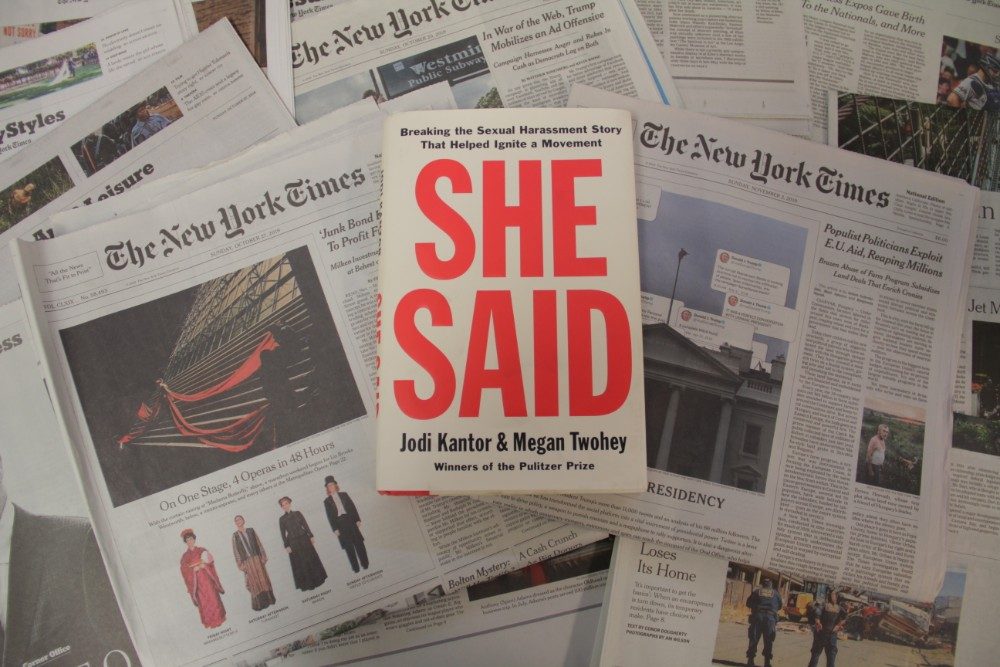
By Justin Hsieh
For the past two years, the #MeToo movement has rocked the United States and the entire world with its deep and wide-reaching transformation of the way we talk about gender, work, sexual harassment and society. But the movement, which simmered for years before exploding into the mass phenomenon it is today, needed a spark to get it started.
This is the focus of “She Said,” the new book written by New York Times reporters Jodi Kantor and Megan Twohey.
In the book, Kantor and Twohey chronicle their work in uncovering and reporting on years of sexual assault allegations against film producer Harvey Weinstein. It also highlights the storm of women who came forward after they published their groundbreaking article and the controversial culmination of the #MeToo movement in the testimony of Dr. Christine Blasey Ford against then-Supreme Court nominee Brett Kavanaugh.
Throughout their recounting, Kantor and Twohey build a powerful and revelatory narrative that gives new context and perspective to the #MeToo movement.
“She Said” is not a book about Harvey Weinstein. “She Said” is a book about investigative journalism. It is a book about the difficulties of reporting on a story buried for decades under legal obfuscation, corporate complicity, economic intimidation and intense social pressure. It is a book about the persistence and rigor of two reporters who believed that this story needed to be told, and that it could be told. And it is a book about the principles of sharing the truth and defending the voiceless that make journalism so important to this country.
“She Said” is not a book about Harvey Weinstein. “She Said” is a book about brave women. It is a book about the extraordinary courage it takes to speak up after years of fear, trauma and shame. It is a book about the harrowing choices that these women had to grapple with, and the potential consequences they had to stare down.
And, through Kantor and Twohey’s writing, the book has itself become an example of the very topics it covers.
In detailing the revelations of the Weinstein investigation, and in exploring the fierce public debates that erupted over the #MeToo movement and the testimony of Dr. Ford, “She Said” is itself a paragon of fair, conscientious and impactful journalism. Kantor and Twohey manage to create a gripping narrative of their experience and simultaneously remain visibly committed to the journalistic principles of accuracy and impartiality. Through their clear attention to detail and dedication to presenting all sides of the story, Kantor and Twohey are able to discuss a sensitive and delicate issue with refreshing objectivity, clarity and professionalism.
In recounting the authors’ process of investigating and reporting on the Weinstein story, “She Said” is also a testament to the courage and resolve of Kantor and Twohey themselves. “She Said” illustrates how, with the help of Times editor Rebecca Corbett, the women were able to persist in their search for answers despite attempts to stifle their investigation.
The book’s description of the countless unanswered messages, rejected meetings and active intimidation that the reporters had to wade through to get the story told makes clear that the #MeToo movement was not inevitable or spontaneous – it was the product of committed and diligent journalists who let nothing stop them from getting to the truth.
Overall, “She Said” is a work of expertly written nonfiction that covers one of the most important social developments in the past decade. Through a combination of powerful subject matter, meticulous journalism and masterful storytelling, Kantor and Twohey have created an inspiring and illuminating work that everyone should read.





